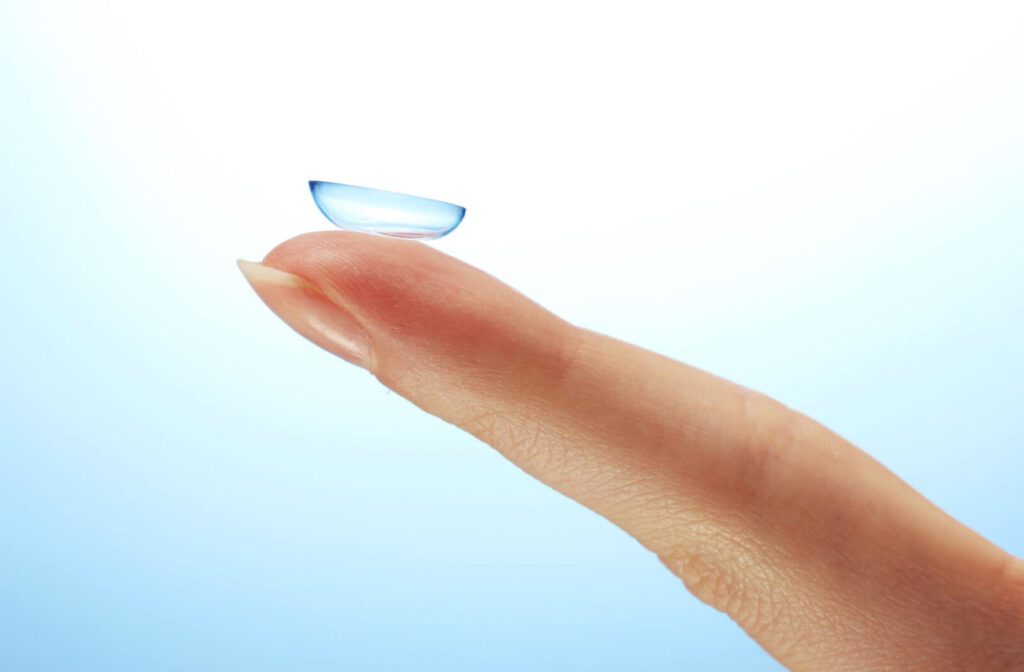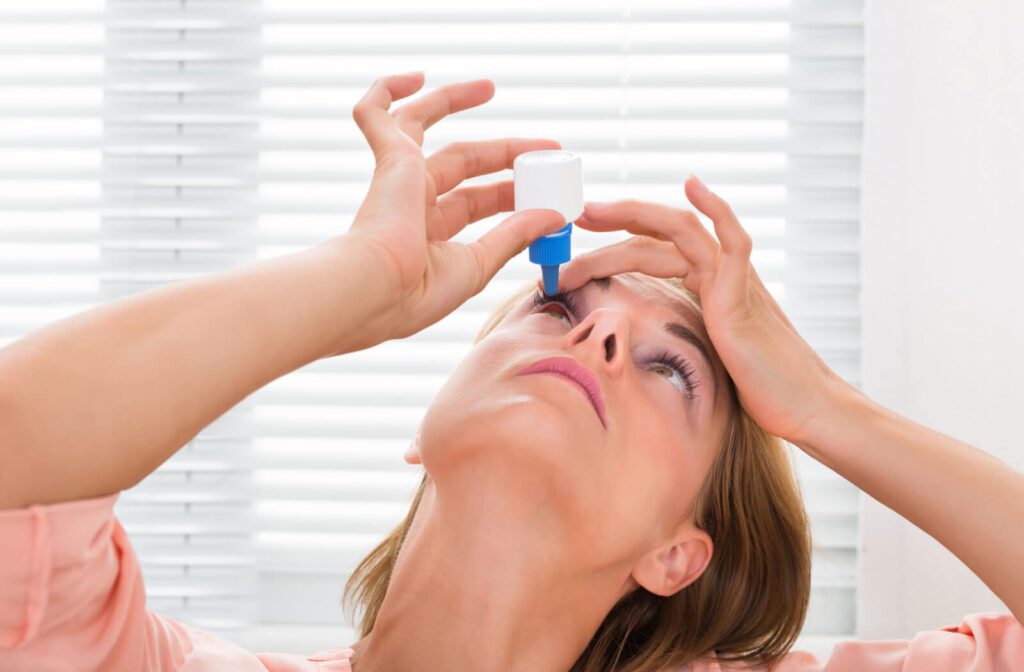Table of Contents

Introduction
Individuals with myopia or nearsightedness have difficulty seeing objects in the distance. It’s a common eye condition in children that can worsen as they age if not treated with glasses or contact lenses.
While you can’t cure myopia, there are ways to slow the progression to prevent high myopia. Myopia control contact lenses are one option. Let’s discuss myopia and MiSight contact lenses in more detail.
Myopia in Children
Myopia tends to occur more in children between 6 and 14 years. As children age and their eyes continue to develop, myopia can progress until their 20s.
Myopia is a refractive error due to the incorrect focusing of light in the eye. In myopia, light focuses in front of the retina instead of on it, causing you to see blurry objects in the distance. The cause is a structural change in the eye, causing the light to focus incorrectly, such as an eyeball that is too long or the cornea too steep.
Risk Factors for Myopia
Certain factors increase your risk of developing myopia, including:
- Age: Myopia usually develops in children and can continue into adulthood. There is also adult-onset myopia from diabetes or visual stress.
- Family history: Your risk of myopia increases if you have one or both parents with myopia.
- Lifestyle: More time spent indoors and on near-focus activities, such as digital devices or reading.
Symptoms of Myopia
Younger children may not know or complain of vision problems. Eye exams are, thus, are crucial in detecting myopia in children at an early age.
Having severe myopia as a child may make you more susceptible to other eye conditions later as an adult. These can include early cataracts, detached retina, and myopic macular degeneration that also causes blurry vision.
Besides distant objects appearing blurry, here are other symptoms to watch out for:
- Moving closer to the television to see clearly
- Holding a book close to the eyes when reading
- Having trouble seeing the white or blackboard at school unless sitting in the front
- Eye strain
- Squinting often
- Headaches

Treatment of Myopia & Myopia Control
Treatment of myopia includes correcting the refractive error with glasses and contact lenses that help refocus light onto the retina resulting in clearer vision. Correcting nearsightedness with single prescription lenses forms one part of the treatment.
Another is slowing down myopia progression. Myopia control involves slowing or stopping eye growth and includes one or a combination of the following treatment methods:
Atropine Eye Drops
Low-dose atropine eye drops can slow the progression of myopia with fewer side effects. They can also work in conjunction with other treatment options. The duration of treatment with low-dose atropine eye drops can depend on the following factors:
- Age of patient when treatment starts
- Refractive error at the start of treatment
- The rate of myopic progression
- Family history of refractive error
MiSight Contact Lenses
MiSight contact lenses are soft contact lenses approved for slowing myopia progression in children between 8 and 12 years. They are single-use, disposable, and worn during the day.
A 3-year randomized clinical trial showed that MiSight contact lenses slowed myopia progression by reducing the rate of eye growth. The contact lenses are shaped like a bullseye and have a dual focus design.
The central portion corrects nearsightedness, and the outer adds focusing power to help bring peripheral light into focus in front of the retina. It blurs peripheral vision and reduces the stimuli that tell the eye to elongate.
Ortho-K
Ortho-K or orthokeratology are small rigid contact lenses designed for nighttime wear and removed in the morning. Worn overnight, they gradually reshape the cornea and maintain the new shape to provide clear vision during the day.
Ortho-K contacts require personalized lenses for individual eye shape and curvature. They can slow myopic progression in children by 36 to 56%. However, if you stop wearing them, the cornea can revert to its original shape.
Myopia Control at Golden Vision
Preventing myopia from developing is almost impossible, but correction and myopia control are. You can also take measures to protect your eyes to maintain healthy vision for longer, such as limiting screen time and spending more time outdoors.
There is no substitute for regular eye exams. If you have myopia and are looking for myopia management and control solutions, book an appointment with Golden Vision today.








